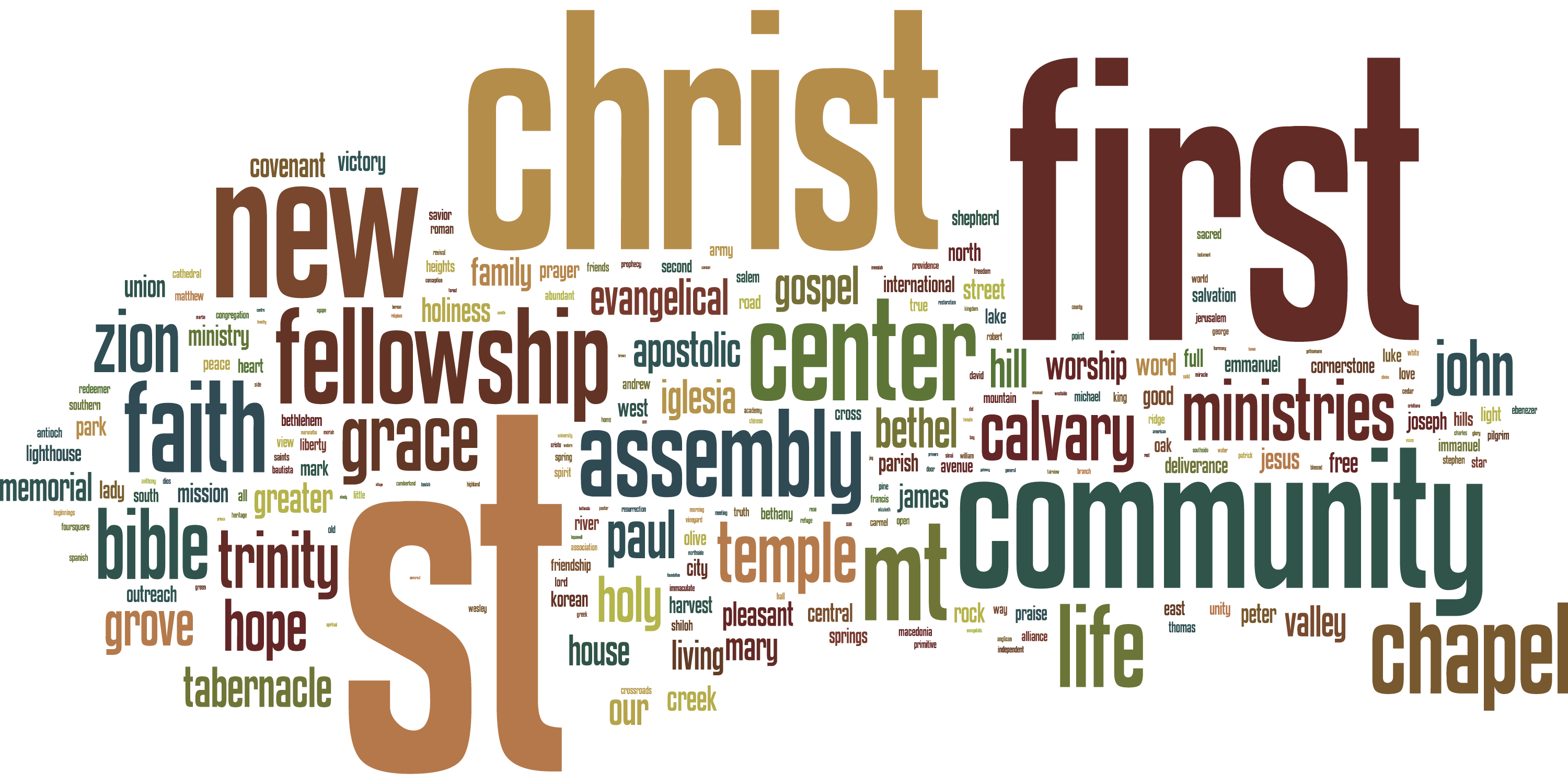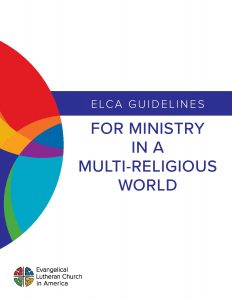Other Churches

Introduction
 Other Churches have also contributed to interreligious dialogue. They too have found inspiration in the Bible and in their Christian teachings and liturgies for reaching out in friendship, either singly or ecumenically, to build relations with their neighbors from other faiths. They have developed skills, passions, energies and insights which have enriched the interfaith apostolate.
Other Churches have also contributed to interreligious dialogue. They too have found inspiration in the Bible and in their Christian teachings and liturgies for reaching out in friendship, either singly or ecumenically, to build relations with their neighbors from other faiths. They have developed skills, passions, energies and insights which have enriched the interfaith apostolate.
Teaching Documents
Church of England, Work with other Faiths
The Church of England, in partnership with other Christian churches, seeks to build up good relations with people of other faith traditions, and where possible to co-operate with them in service to society.
https://www.churchofengland.org/about-us/interfaith.aspx
NIFCON is the Network for Inter Faith Concerns across the Anglican Communion. Through this Web site, we hope to keep you informed on events, courses and articles on Inter Faith matters and serve as a resource for you.
http://nifcon.anglicancommunion.org/
Anglican Communion Network for Interfaith Concerns. “Generous Love: The Truth of the Gospel and the Call to Dialogue.” (2008): 24.
This short treatise is the culmination of work in which NIFCON has been engaged over the last four years.it seeks to provide the discernment of a distinctively Anglican theology of inter faith relations which can be a part of the drawing together of the rich reflection which has gone on over the last forty years since Nostrae Aetate but with renewed impetus more recently. If we proclaim and serve a generous God can we be any less generous in our dealings with our neighbours of other faiths? How does our understanding of the Trinitarian nature of God, a core Christian belief, inform the content and method of our thinking about inter faith relations? How do we affirm the importance of dialogue without compromising our allegiance to the one Lord and Saviour? This document is offered for study and as a stimulus for discussion and further reflection.
http://www.anglicancommunion.org/media/18910/generous_love_a4_with_foreward.pdf?subject=Inter+faith.
The official website of the world-wide Anglican communion. Here you will find news and information about the life and ministry of the Anglican/Episcopalian family of churches in more than 165 countries.
http://www.anglicancommunion.org/relationships/interfaith-dialogues.aspx
Churches Together in Britain & Ireland
Across Britain and Ireland there is a rich tapestry of faiths. Some people belong to major world religions that are ancient and historic, while others follow smaller, newer faiths.
Many show a passionate commitment to their religion, which plays a major part in their identity and sense of belonging. Others are more sporadic in their observance and may regard their faith as a private, spiritual affair.
These differing spiritual approaches leave Christians with many questions to consider, such as how to relate to people of other faiths without compromising their own beliefs.
Churches Together in Britain and Ireland provides an ‘ecumenical space’ in which these and other issues can be explored and reflected upon.
Presbyterian Mission Agency, USA
 The Interfaith Relations Office seeks to support those in the church who are interested in, concerned about or engaged in building interfaith relationships. As Presbyterians learn about religious diversity, we reflect theologically on our relations with neighbors of other faiths. We also seek avenues for cooperation, or look for educational resources and practical models for bringing communities together. We hope you will find helpful information and resources on this we site.
The Interfaith Relations Office seeks to support those in the church who are interested in, concerned about or engaged in building interfaith relationships. As Presbyterians learn about religious diversity, we reflect theologically on our relations with neighbors of other faiths. We also seek avenues for cooperation, or look for educational resources and practical models for bringing communities together. We hope you will find helpful information and resources on this we site.
To see the website click here: The Interfaith Relations Office
The Uniting Church in Australia, Relations with Other Faiths (ROF)
The Uniting Church in Australia National Working Group on Relations with Other Faiths was established to promote knowledge and understanding of other world faiths. As Christians, we believe that diversity is a part of God’s creation. God calls us to live together in peace and love, and to engage in genuine dialogue with people of other faiths.
Evangelical Lutheran Church in America (ELCA)
Guidelines for Ministry in a Multi-Religious World
Evangelical Lutheran Church in America (ELCA)
 Guidelines for Ministry in a Multi-Religious World
Guidelines for Ministry in a Multi-Religious World
CHICAGO, USA/GENEVA
1/8/2022
Evangelical Lutheran Church in America shares suggestions for planning interfaith services and events
(LWI) – Responding to the rapidly changing religious landscape in the United States, the Evangelical Lutheran Church in America (ELCA) has published a new set of guidelines for ministry in a multi-religious world. Designed for pastors, deacons and others engaging in interfaith work, the document contains a wealth of considerations and planning suggestions for organizing interreligious services such as weddings, funerals, ordinations or responses to national tragedies and crises.
The guidelines grow out of a 2019 Declaration of Inter-Religious Commitment which the ELCA developed to provide a theological grounding for the growing engagement of Lutherans with people from other faith communities. The new document is the fruit of widespread consultation among both Lutherans and their ecumenical and interreligious partners, with over 2.600 people responding to a survey to share their “experience, expertise and collective wisdom” with the drafting committee.
“Our landscape is changing so rapidly that every community is being shaped by new religious realities,” says Kathryn Lohre, ELCA’s Executive for Ecumenical and Inter-Religious Relations and Theological Discernment. While people often think of religious diversity in urban areas, she notes that waves of migration and refugee resettlement mean that rural areas and small towns are also experiencing new levels of ethnic and religious diversity.
Despite this growing diversity, Lohre continues, “the response to a tragedy in one place will still look very different to the response in another which may be newer to the challenges of a multifaith reality.” Though the committee received requests for templates to help with the organization of inter-religious events, she says, “we decided that there is no one-size-fits-all model because contexts absolutely matter and relationships must be at the heart of this ministry.”
Consultation between Lutherans and their interfaith partners must guide the response and the planning, the guidelines insist, in order “to honor the integrity, distinctive commitments and gifts of each tradition.” It is vital to “spend time building relationships of trust and respect before attempting to put together a formal event that can lead to misunderstanding or even harm,” they add.
The new document acknowledges the “misunderstanding, prejudice, abuse and violence” that has characterized relationships between Christians, including Lutherans, and other faith traditions in the past. “We must be sensitive to the ways we may have hurt each other (in the past and in the present),” it says, because “even simply acknowledging such a history is an important step in the direction of healing and reconciliation.”
Mutual learning to enrich self-understanding
Both the new guidelines and the Declaration clearly articulate the church’s commitment to evangelism, affirming that “the gospel, or good news is at the heart of our faith,” inspiring and shaping “the way we engage with our neighbors.” Nevertheless, Lohre recognizes that inter-religious tensions persist, often inflamed by xenophobic and anti-Islamic rhetoric. “Not all people in our church accept that we ought to be engaging in this kind of ministry,” she notes. “Yet the guidelines point out that interfaith engagement usually enriches our own faith as we have to be clear about who we are and what we believe,” she says. Our goal is “to up-end fears and show that by loving our neighbors, we can find deeper, richer self-understanding within our own faith context,” she adds.
As a mother of four, Lohre points out that “my own children are aware of this truth about religious diversity in a way that I wasn’t when growing up, even though I had friends who were Jewish, Muslim, Hindu, Sikh and Buddhist.” Such awareness of mutual enrichment marks “a step beyond tolerance to engagement” and gives Lohre much hope in her day-to-day work.
She and the other authors of the guidelines are encouraged by the positive feedback they have received, including from their interfaith partners who were asked to review the final draft before publication. “Our inter-religious partners can hold up a mirror to reflect how they see us,” Lohre says. “In doing so, they can help us to see more clearly who we want to become and how we can continue to grow together.”
Source: https://www.lutheranworld.org/news/guidelines-ministry-multi-religious-world
To download document click on Guidelines for Ministry in a Multi-Religious World
